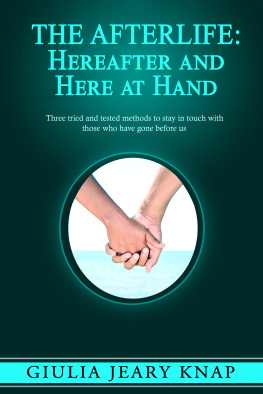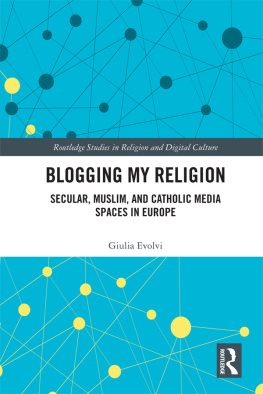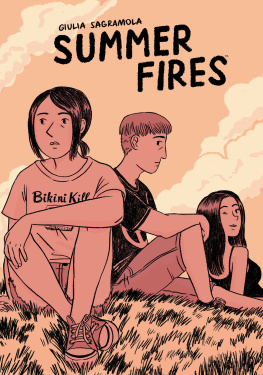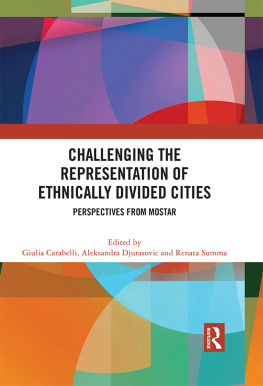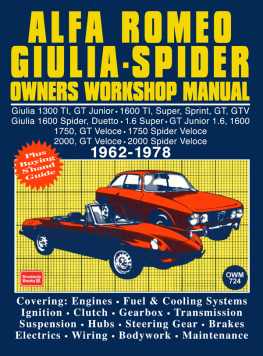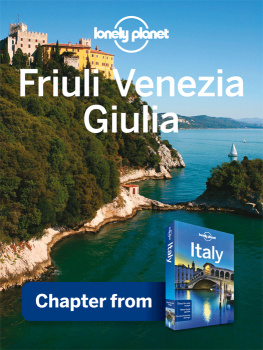Giulia Pines - Finding your Feet in Berlin
Here you can read online Giulia Pines - Finding your Feet in Berlin full text of the book (entire story) in english for free. Download pdf and epub, get meaning, cover and reviews about this ebook. year: 2014, publisher: Berline Story, genre: Detective and thriller. Description of the work, (preface) as well as reviews are available. Best literature library LitArk.com created for fans of good reading and offers a wide selection of genres:
Romance novel
Science fiction
Adventure
Detective
Science
History
Home and family
Prose
Art
Politics
Computer
Non-fiction
Religion
Business
Children
Humor
Choose a favorite category and find really read worthwhile books. Enjoy immersion in the world of imagination, feel the emotions of the characters or learn something new for yourself, make an fascinating discovery.

- Book:Finding your Feet in Berlin
- Author:
- Publisher:Berline Story
- Genre:
- Year:2014
- Rating:3 / 5
- Favourites:Add to favourites
- Your mark:
- 60
- 1
- 2
- 3
- 4
- 5
Finding your Feet in Berlin: summary, description and annotation
We offer to read an annotation, description, summary or preface (depends on what the author of the book "Finding your Feet in Berlin" wrote himself). If you haven't found the necessary information about the book — write in the comments, we will try to find it.
Finding your Feet in Berlin — read online for free the complete book (whole text) full work
Below is the text of the book, divided by pages. System saving the place of the last page read, allows you to conveniently read the book "Finding your Feet in Berlin" online for free, without having to search again every time where you left off. Put a bookmark, and you can go to the page where you finished reading at any time.
Font size:
Interval:
Bookmark:
Unter den Linden 40, 10117 Berlin
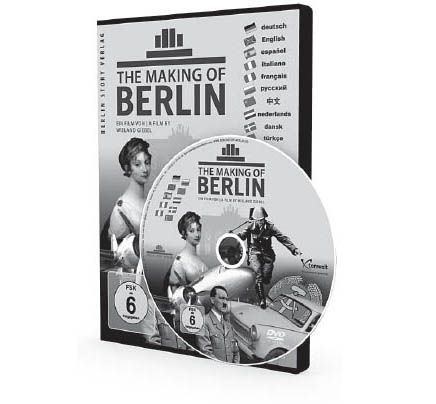
WIELAND GIEBEL
DVD: MAKING OF BERLIN
ISBN 978-3-95723-033-1
Regional code: 0 (worldwide)
Audio: 10 languages (German,English, Spanish, Italian, French, Russian, Chinese, Danish, Turkish, Dutch)
PAL/Color/4:3, 28,5 MIN
History, curiosities and prospects. How the Hohenzollern princes created Prussia and gave Berlin a place among the european capitals. The citys glory in the last century, its fall and rise from the ruins. What makes todays Berlin: its people, its architecture and its cultural life. Superb pictures and an expert analysis by Wieland Giebel, who has edited and published several books about Berlin.
Updated 2014!

WIELAND GIEBEL
BERLIN 1933-45, 1945-89:
NATIONAL SOCIALISM AND COLD WAR
ISBN 978-3-86368-119-7
Reversible city map
10,5 19,8 cm, unfolded 84 59,4 cm
Searching for historical traces!
Two city maps of todays Berlin visualize the years of national Socialism and the years of the Cold War with numerous entries and many pictures. Find the Berlin Wall, the Fuhrer Bunker, Topography of Terror, memorials, museums and many more.
Astonishing, low-priced time travel.
(German edition available.)
Check out www.slowtravelberlin.com | |
slow travel berlin |
|
Much like that famous Winston Churchill quote about Russia, Berlin can often seem like a riddle wrapped in a mystery inside an enigma. To young first-timers, it may seem impossible that a city this vibrant, this central, and this cosmopolitan could still be so cheap. To those who were born here, or perhaps have lived here for a good portion of their lives, it can be perplexing and somewhat laughable that anyone would care about this place: Berlin, after all, spent much of its life as a somewhat provincial outpost just within the borders of several great empiresbefore finding itself at the center of 20 th century history. To everyone else, Berlin is simply a fascinating and bewildering place that, even in the years since its reunification, somehow seems to live outside the boundaries of normal time and space.
Its quickly catching up on all counts, though, and visitors these days will find a city both thoroughly wrapped up in itself and embracing of all outsiders, a city where deep construction holes and swiftly rising ultra-modern buildings are just as common as old mainstay neighborhoods that dont appear to have changed in a century, a city where a student can feel just as at home as an artist, or a high-powered politician, or a retiree, as long as he doesnt take himself too seriously. The ubiquitous quote from Berlins longtime mayor Klaus Wowereit, that the city is poor but sexy has probably been used to sell everything from guidebooks to T-shirts by now, but those repeating it often ignore the greater significance of it: it is not the words that Wowereit (or Wowi, as he is known to his supporters) chose to use, but rather the fact that he said them at all: that even the mayor of a European capital is comfortable enough with his hometown to label it in such a way, and to be reasonably certain of no resulting backlash. Most would agree with him: Berlin has been penniless for far too long. But like many a penniless artist, its lack of money has forced it to get creative in other ways.
Berlin nowadays is a city still coming into its own, in more ways than one. In 1991, two years after the fall of the Berlin Wall and only one year after official reunification, the German parliament voted, by an extremely small margin, to make Berlin the capital of reunified Germany. (During the divided years, Berlin had been the capital of East Germany, while the West German capital was moved to Bonn.) Ask many German politicians today, and publicly theyll tell you that it was a good decision, but privately, perhaps theyre still struggling with it. Although the impressive, modern Regierungsviertel (government quarter) has come to define new Berlin, many politicians forced to work there may still long for their genteel homes in the south. In fact, the conventional clich is that many still have homes there, staying in Berlin only as long as it takes to vote and attend a couple of high-powered luncheons, and then high-tailing it back to the other side of the Rhine. Now, with the addition of the Bundesnachrichtendienst, Germanys central intelligence agency, entire city blocks at the northern edge of Mitte, Berlins central district, have been overhauled. A barren stretch of the city has now been enlivened with shops, hotels, and cafs, all intended to service a swarm of government agents.
In addition, companies that jumped ship when the Wall went up, abandoning the city after the war for the southern regions that were safer for business interests, are returning. Once again, Berlin is proving itself ripe for business and industry, and nothing has reflected this trend more strongly than its emergence as the so-called Silicon Allee, the German home of international startups. In just the last five years, Berlin has been flooded with startup offices, some of them the European headquarters of companies that have already found a measure of success elsewhere, others merely German versions of already successful ideas. Most of these companies are relentlessly international, hiring employees from many parts of the world who speak many languages and have decidedly 21 st century talents, like coding and social media expertise. In many ways, Berlin is the perfect city for startups, as the Berlin lifestyle and the startup lifestyle fit each other so well: both are laid back, unconventional, and value creative drive and innovation over long but less productive working hours. Its no great shock that Berlin and Silicon Valley have become fast friends; its only surprising that it didnt happen sooner.
Add to that the fact that every year, Berlin is flooded with students and artists, the former attracted by essentially free educations offered at multiple top universities, technical colleges, and trade schools, the latter lured in by the still relatively cheap rent and the buzz of creativity fueled by it. If a comparison must be made between Berlin and some other city, think of New York in the 80s, minus the crime. The historical explanation for Berlins low rents will be discussed later, but suffice it to say, theyve been enough to give every artist, musician, or writer who might have been discouraged by the cost of living in most other cities a chance at some level of success here. With rents for studios or co-working spaces still only a couple of hundred Euros a month, and living costs still well under a thousand a month depending on the neighborhood, artists can afford to get creative without sacrificing precious time and energy on a boring day job. The dearth of drive, however, and the lack of a true challenge to overcome has its advantages and disadvantages. While some truly embrace the open, effortless lifestyle Berlin provides, others find the lack of outside pressure to succeed dulls their ambition, making it difficult to reach goals, much less set them in the first place. It is as if the entire city, having been bombed to shreds in WWII, has decided to remake itself not once, not twice, but over and over again. And its inhabitants, taking their cues from the city itself, have decided that the best way to live there is simply to follow suit.
Font size:
Interval:
Bookmark:
Similar books «Finding your Feet in Berlin»
Look at similar books to Finding your Feet in Berlin. We have selected literature similar in name and meaning in the hope of providing readers with more options to find new, interesting, not yet read works.
Discussion, reviews of the book Finding your Feet in Berlin and just readers' own opinions. Leave your comments, write what you think about the work, its meaning or the main characters. Specify what exactly you liked and what you didn't like, and why you think so.

